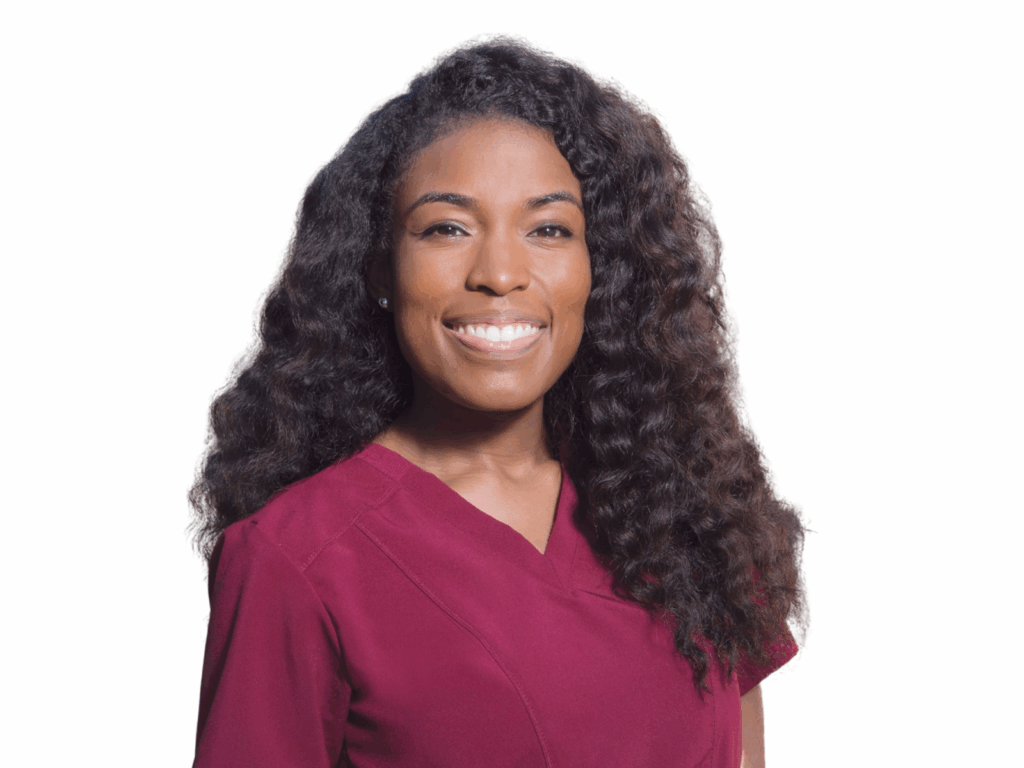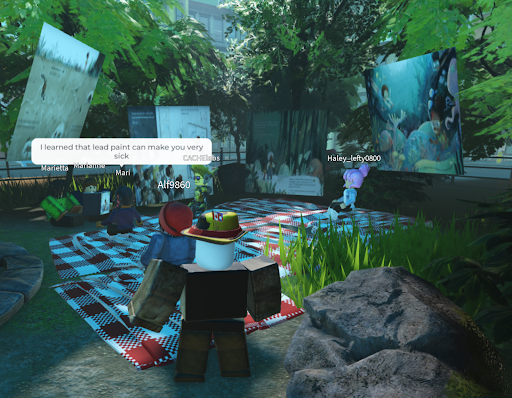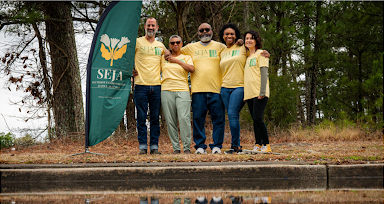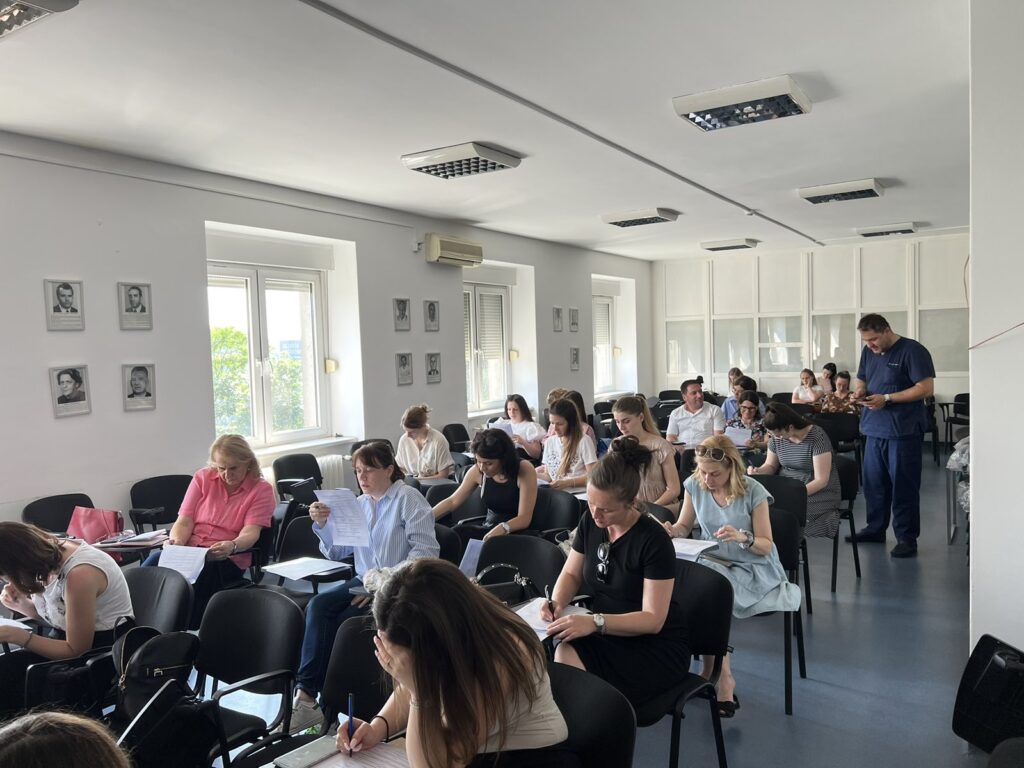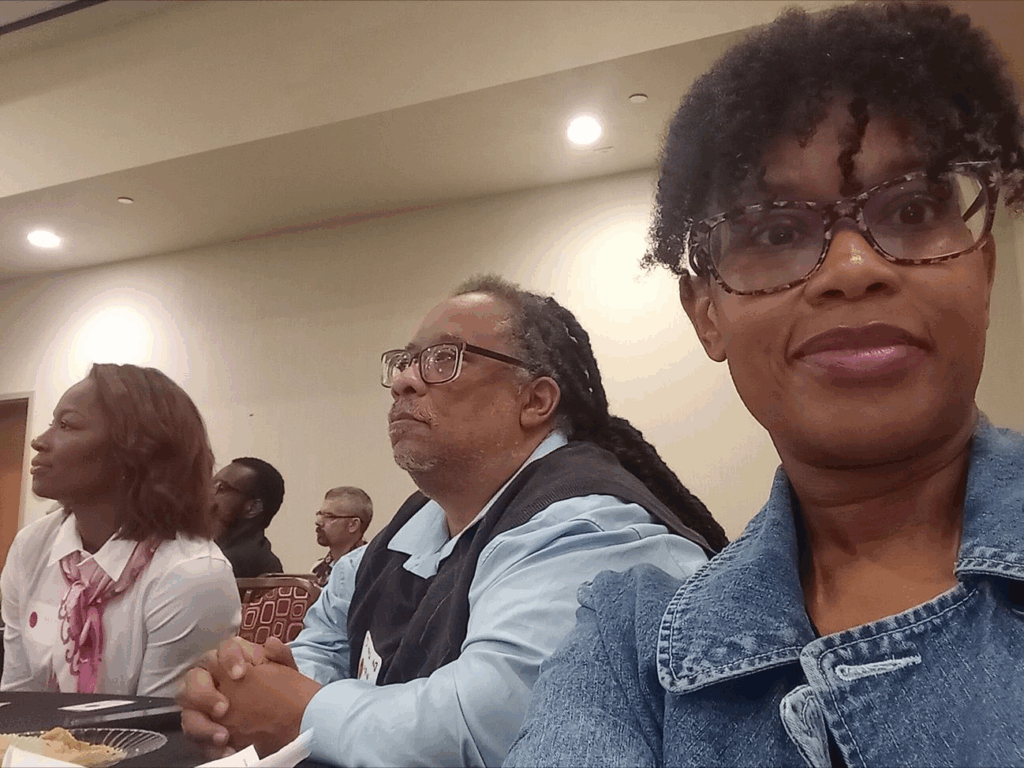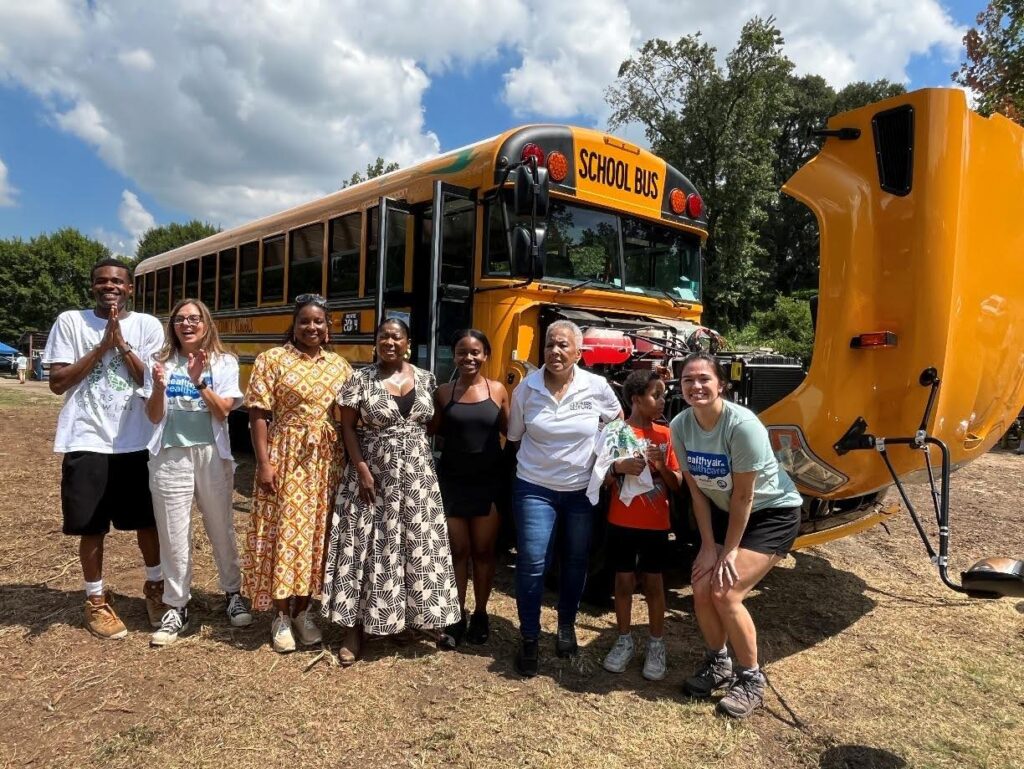Ears on the Ground: CBWW Shares Collaborative Model for Improving Environmental Health at Recent Environmental Conference

Center for Children’s Health Assessment, Research Translation, and Combating Environmental Risk (CHARTER)
Emory University and University of Georgia

In June, an environmental health and climate conference in Valdosta, Georgia, brought together groups from around the state to share ideas and build stronger partnerships around environmental health. Emory Nursing’s CHARTER project teamed up with Science for Georgia and several other environmental groups to organize and host the event. Team members Thao Lam and Gillian Smith from the Center for Black Women’s Wellness (CBWW) gave a great presentation about their work on environmental health, highlighting their long-standing partnership with CHARTER.
CBWW is working to make healthcare more accessible for people in Southwest Atlanta— especially for those who are low-income, uninsured, or face barriers to care. They serve more than 1,500 Atlanta residents each year, offering everything from medical care and family support to economic resources and advocacy for fair health policies. One of their standout programs, created through a partnership with Emory Nursing, focuses on helping families learn about everyday environmental risks—like unsafe household cleaners, extreme heat, and poor air quality. They empower residents to better understand these environmental risks and take practical steps to protect their health.
Over the last several years, CBWW has administered an environmental health questionnaire, or “screener,” to community participants at events and in their clinic. Those who complete the screen often receive useful supplies like non-toxic cleaning products, personal care items, filtered water bottles, and safe outdoor toys for kids. Gillian and Thao emphasized that the data from the screener is analyzed to directly impact those same residents, determining outreach priorities and tailoring educational tools. Partnering with CHARTER, CBWW incorporates feedback from evaluation and environmental health subject experts, alongside organic community conversation. They shared how this collaboration has resulted in more targeted language, HIPAA compliance, and questions aimed at earlier warning signs for prevention. Examples of successful outcomes from the screener include CBWW’s “Prescriptions for Prevention” pamphlets, the annual Community Health Fair, Summer Safety Webinars, Patient Rights education, and more.
Reflecting on CBWW’s work, Gillian Smith stated, “We demonstrate the importance of on-the-ground efforts to improve the environmental health of our community here in metro Atlanta. With our ears on the ground, we have implemented effective environmental health ideas like providing free glass baby bottles, free organic produce, and low-cost preventative care.” She emphasized the importance of keeping their “ears on the ground” to continually seek and implement the community’s feedback. Information on internships, staff, and volunteer programs can be found on their website www.cbww.org.
The conference in Valdosta spotlighted the power of collaboration and local leadership in improving environmental health. CBWW’s presentation served as a reminder that lasting change starts with listening, learning, and taking action alongside the community. As groups across Georgia continue to build partnerships and share tools, CBWW’s work offers a meaningful model for how data, trust, and local insight can fuel healthier futures—one neighborhood at a time.
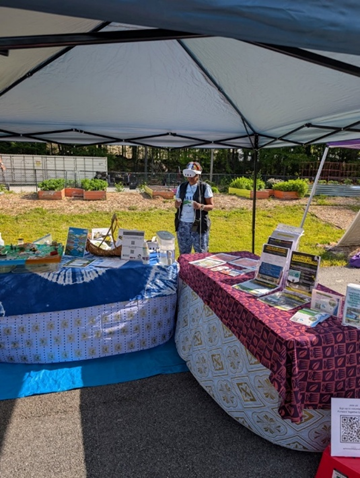
After virtually experiencing the impact of a hurricane firsthand, community members were guided to two key resources– the first an explanatory video about the VR simulation and why experiencing something in VR can be an effective driver of behavior change, and the other linking to Science for Georgia’s emergency preparedness resources, empowering families to create household plans for future severe weather events. By blending cutting-edge technology with accessible education, CHARTER not only raised awareness of extreme weather risks but also equipped community members with actionable resources to drive meaningful change and build resilience.
Anyone who has a Meta Quest 2, Meta Quest 3S, or Meta Quest 3 headset can download the VR experience and find more information on how to be prepared for hurricane induced storm surge events and flooding: https://www.ugavr.com/WeatherTheStorm.
